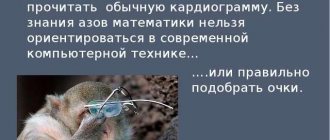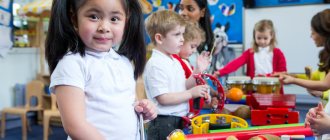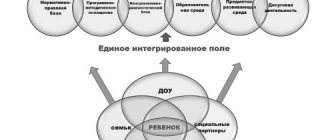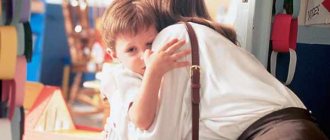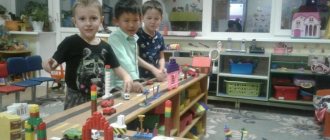Physical development: water aerobics
Swimming in the pool is good. And water aerobics is even better. Children will not only learn to float on the water, but will also be able to strengthen their muscles and develop correct posture. In water, the joints and spine rest, while the child can throw out his energy. Water aerobics teaches children to interact with each other and helps develop flexibility.
Capoeira is a Brazilian martial art that combines elements of dance, games, striking techniques, and acrobatics. Kids learn dynamism, endurance and dexterity. Both girls and boys can practice this martial art.
Circus art is a very unusual and exciting activity. Children will be taught to juggle and dance. In addition, the children will be taught acrobatics skills. Such activities will definitely appeal to active and cheerful children.
Physical education and sports club
A physical education and sports club is an additional load on all parts of the children’s body through sports activities and training. In such groups, children not only learn a specific sport (for example, football, volleyball, gymnastics), but also improve their health. Classes can be held both after school and on weekends.
A sports club as a form of extracurricular activity at school, as a rule, operates on the initiative of the teacher; payment for attending is not required. In private schools, club work in physical education and sports is such that any sports that are available to the administration are offered. There are no restrictions here - even horse riding lessons are possible.
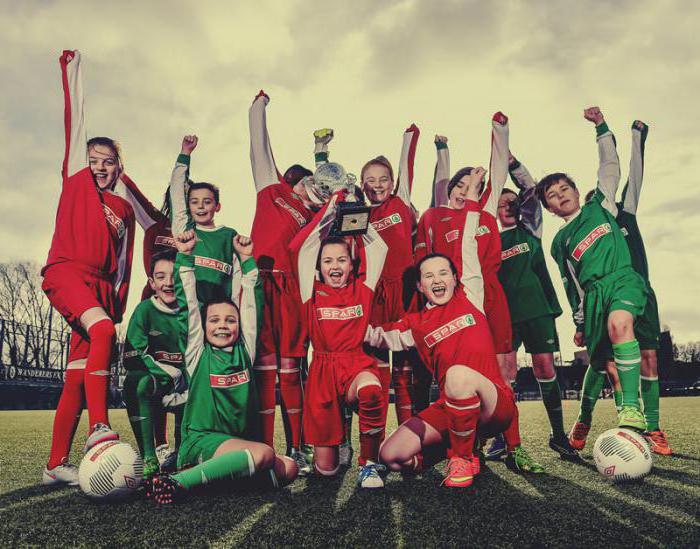
There are also additional sports schools that train professional athletes in their chosen sport.
Intellectual development: chess, robotics
Children as young as 4 years old can start playing chess. Since chess is a game, the child quickly learns this interesting activity. During the learning process, memory, logic, attention, and thinking develop. In addition, playing chess helps develop perseverance, instill in a child the will to win and determination.
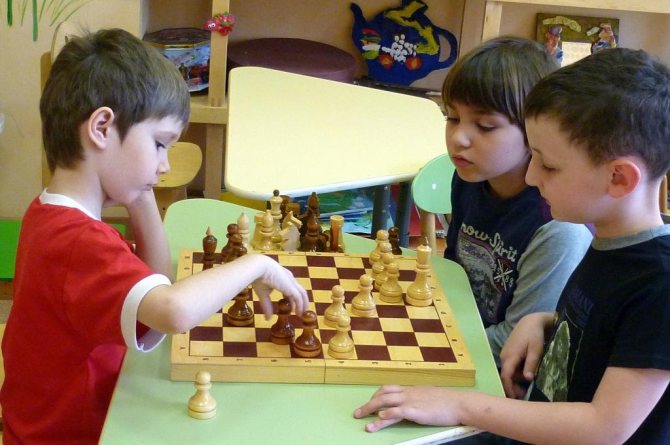
Robotics is interesting to children from an early age. After all, a child can create a robot himself, even the most primitive model. Such activities help develop logical thinking, attention, and perseverance. The children learn to work with their hands, and also communicate with each other and learn to work in a team.
Mental arithmetic helps develop a child’s mental abilities so much that he can solve any example or problem in his mind. Such activities have a beneficial effect on mental abilities in general. Mental arithmetic allows you to develop thinking, logic, and memory. And you need to do it at an early age.
Organization of circle work in preschool educational institutions; methodological development on the topic
Consultation for teachers
“Planning and organizing circle work
preschool teacher"
prepared:
teacher Yulbarisova L.M.
In connection with changes in the law of the Russian Federation “On Education” and the definition of Federal State Requirements for the structure of the basic educational program, the introduction of Federal State Standards, the work of raising children in preschool institutions is changing. Currently, not only basic education, but also additional education plays a big role in the development of a child.
The variable part of the program, formed by participants in the educational process, is circle work. Club work in a preschool educational institution has long become the norm of activity of the teaching staff and has gone beyond the scope of innovation. The variety of clubs and the content of their work amazes a person who is far from preschool pedagogy. However, no matter how different the circles may be at first glance, they have a lot in common, and in organization and functioning they are subject to general laws.
A circle is an informal, free association of children in a group for activities based on their common interest, based on additional material to the tasks of the Education and Training Program in kindergarten under the guidance of an adult (teacher).
It is necessary to draw the attention of teachers to two points recorded in this definition.
Firstly: the circle is organized based on the interests and needs of the children. At the same time, the teacher should pay attention to the wishes of parents, which can be identified through various forms of work with them: conversations, consultations, parent-teacher meetings, etc.
Secondly: The work of the circle is based on material that exceeds the content of the state standard of preschool education. Thus, circle work in preschool educational institutions refers to additional education for children.
Clubs in kindergarten perform several functions:
- educational - every pupil of an educational institution has the opportunity to satisfy (or develop) their cognitive needs, receive additional development of skills in the type of activity that interests them;
- socially adaptive - classes in clubs allow students to gain socially significant experience of activity and interaction, experience a “success situation”, and learn to assert themselves;
- correctional and developmental - the educational process implemented in the circle classes allows you to develop the intellectual, creative, physical abilities of each child;
- educational - the content and methodology of work in circles has a significant impact on the development of socially significant personality traits, the formation of communication skills, the education of social responsibility, collectivism, and patriotism.
Clubs as a form of additional education in preschool educational institutions can be opened for various purposes:
- Deepening and expanding basic knowledge, advanced child development or compensatory activities (for children with developmental delays).
- Familiarization with areas of knowledge that go beyond the scope of the state Program (working with gifted children).
- Familiarization with areas of knowledge and skills, including the development of self-knowledge, self-regulation, self-development, and the formation of interpersonal communication skills.
The activities of any circle are regulated by regulatory and legal
documents:
- Charter of the preschool educational institution,
— Educational program of the preschool educational institution,
— Regulations on the circle
— Club program (goal and objectives, expected end result)
— The circle’s work plan for the year,
— List of children
— Class schedule
— Quality control materials (effectiveness) of the circle’s work (diagnostic cards)
Algorithm for a teacher’s activities to create a circle (section, studio):
- Study of the regulatory framework.
- Identifying the needs of educational institutions, parents, and children for additional educational services.
- Analysis of the effectiveness of work on children’s assimilation of the state preschool education program.
- Development (selection) of the circle program.
- Development of a club plan for the academic year.
- Approval of the program and work plan of the circle of the head of the preschool educational institution.
- Implementation of the circle’s work plan in practice.
- Analysis of the performance of the circle.
- Protection of work results in front of the parent and teaching community. (circle work corners, exhibitions, participation in competitions, shows, etc.)
Club work is carried out throughout the academic year by teaching staff and specialists.
Club work is organized in accordance with the direction of the circle’s activities, based on the selected program of additional education, which should not duplicate the main educational program of the Institution.
The age of children involved in club activities is from 1.5 to 7 years.
The activities of the circles are carried out in a group, a research laboratory, a music and physical education hall, depending on the topic and educational objectives.
The heads of the circles provide reports on the results of the circle’s activities at the meeting of the final pedagogical council.
The course lasts 8 months (from October to May). Classes are held 4 times a month in 2 half days.
The main task of the teacher is to find the right emotional wave of communication with children. This should be easy, relaxed communication that brings mutual pleasure to children and adults.
It is important to take into account that the organization of clubs involves the voluntary (without psychological coercion) inclusion of children in activities, therefore, in addition to the selection of interesting content, there are a number of specific conditions:
– organization of work space;
– the opportunity for children to engage in activities according to their strengths and interests.
– the playful nature of the presentation of any material;
Club leaders organize their activities through the following forms:
- With kids:
— Frontal classes (group)
- Excursions
— Themed walks
— Entertainment, leisure
— Participation in various level competitions
- With teachers:
— Consultations, master classes, seminars for preschool teachers
- With parents:
— Consultations, master classes, speeches at parent meetings, information on the website.
Circles can be of different directions:
Physical development
Social and personal development
Cognitive and speech development
Artistic and aesthetic development
The topics of the circles can be varied.
When organizing the activities of clubs, teachers should take into account:
— the interests of children and the voluntariness of their choice of a circle;
- age characteristics of children, their experience of participating in this type of activity;
— the need to solve educational and educational problems in unity with the main kindergarten program;
- understanding the game as a leading type of activity and building the content of additional education for children on its basis;
— the need to create a comfortable environment in which a creative personality will develop;
- norms of load on the child.
Club work in kindergarten is one of the areas of creative, physical, social, personal and intellectual development of pupils in addition to the main general education program of preschool education implemented in preschool institutions.
Club work strengthens and enriches one or another line of educational activities of preschool educational institutions.
Documentation:
Club work program (perspective-thematic planning)
Diagnostics.
Scheme for developing a circle work program.
- Title page
- Explanatory note (relevance, goals and objectives)
- Expected results (intended result)
- Educational and thematic planning
- Diagnostic cards, diagnostic methods
- Bibliography
Creative development: sand painting, designer doll studio
The sand painting club offers not only interesting, but also useful activities. Sand helps the child simulate situations and create scenery for living out any situation. The baby can transform his problems and resolve the difficulties he has. Sand therapy can reduce anxiety, develop fine motor skills, speech, thinking, and imagination. Such activities help increase self-esteem and instill love for the world around us.
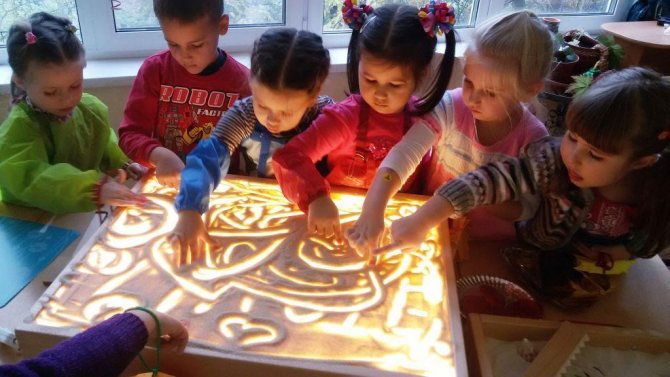
In the designer doll studio, children are taught to make funny textile toys, polymer clay dolls, and frame toys. Classes are structured in such a way that every child finds it interesting. The age of the baby must be taken into account. The youngest children are asked to create a simple doll, while older children can make a rather complex toy. This type of work develops fine motor skills, patience, perseverance, and imagination. The child gains cutting and sewing skills.
Even those who don't know how to draw will enjoy drawing with wool. Experienced teachers will help each child create a unique picture by laying wool on a base under glass. Such activities awaken imagination, have a beneficial effect on the emotional state, and teach perseverance.
When choosing a club for a child, you should focus on abilities and desires. It's the most important. And if your child doesn’t know where it’s best to sign up, you can try different directions.
Artistic and aesthetic circle
Artistic and aesthetic direction is the most common form of extracurricular activity. This includes classes in drawing, modeling, manual labor, dancing and vocals. Such departments develop children’s creative abilities, instill the ability to produce a product with their own hands, and direct children’s educational activities into the world of culture.
The artistic and aesthetic circle is a whole layer of knowledge, which often becomes a priority when choosing a profession for high school students. Having a certain knowledge and skills in their luggage, schoolchildren who attend such organizations become choreographers, professional singers or artists.
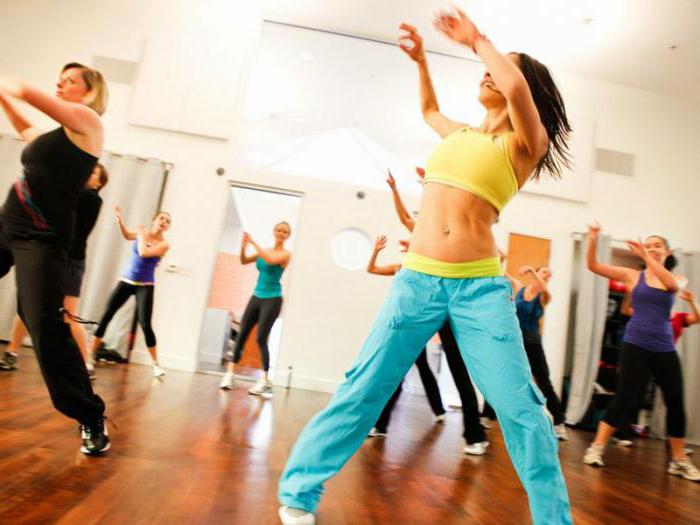
Content:
- What children's clubs are there? Creative clubs
- Sports activities
- Intellectual activities
- Activities for preschool children
- Useful educational apps for children 2-10 years old
- Choosing a club for your child. FAQ
How to enroll a child in clubs through Gosusugi?
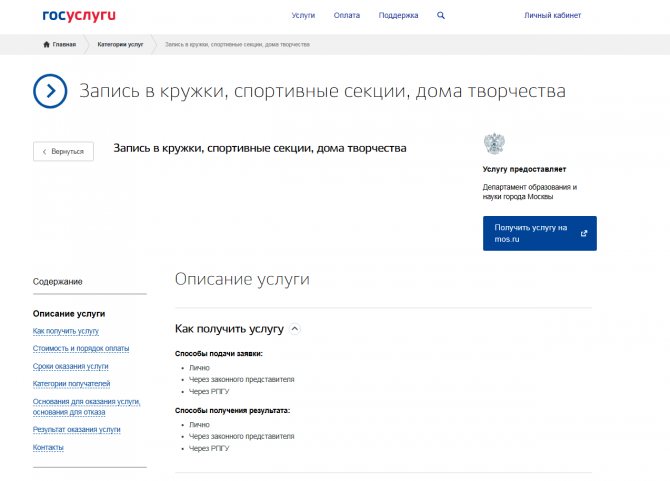
An application for a child’s education can be written directly to the selected organization. This service is also available on the State Services portal for registered users living in Moscow.
How to get it:
- On the main page of the portal, select the “Family, Children” or “Education, Study” section.
- Select the “Enroll in clubs and sections” tab (the portal will redirect you to the mos.ru website)
- Fill out the form, based on it the portal will offer options.
- Choose a direction.
- Select the start date for classes or entrance exams.
- Fill out the form provided.
- Submit your application for consideration.
Application review period is 1 business day. Registration may be denied if there are no available places at the selected institution.
Online classes and apps for kids
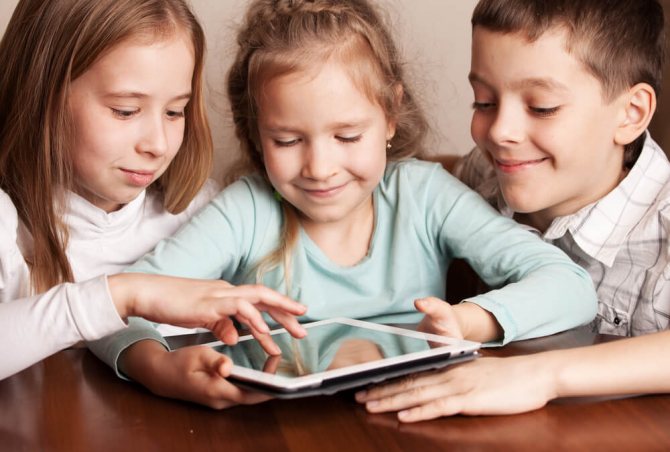
In our digital era, there are a huge number of “developmental” activities, clubs and thematic courses for children in the format of podcasts, audio lectures, online or as a mobile application.
Such activities can be carried out at home and with their help you can organize useful and interesting leisure time for your child, saving time and money.
Useful educational apps for children 2–10 years old
| Application | Age | For what? |
| Mathematics and numbers for children | 2–6 years | It will help you learn numbers and teach you how to count, including in a foreign language. |
| “A very hungry caterpillar. Shapes and colors" | 2–4 years | Together with the character from the popular book by Eric Carle, the child learns to sort objects by shape, size and color. |
| Letters: learning to read is fun | 5–6 years | Introduces letters, helps to learn to read syllables. |
| Thinkrolls: Kings & Queens | 4–7 years | In a playful way, it introduces the child to the laws of logic and physics and teaches them to apply them. |
| "Geography of the World" | 7–10 years | In an interactive and visual form, it will help you remember the names of countries, their flags, and positions on the map. |
⠀ For older children, in addition to quite familiar classes in school subjects, painting or programming, you can now find offers on the Internet for online training in dance, gymnastics and even football.
We motivate you to develop independently
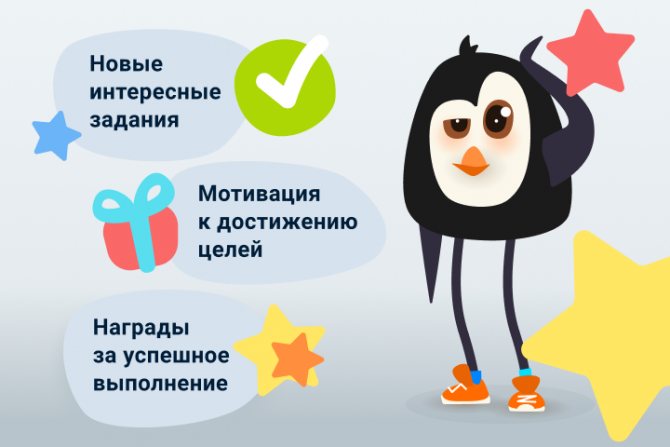
Another advantage of Internet learning technologies is that for children there are now not only areas related to intellectual development, but also ones that help to form motivation, self-organization and practical habits that will make the child’s life much easier in adulthood. For example, the Pingo application, which works in tandem with the “Where are my children” application, is made in the “develop and entertain” concept.
Every day the child receives various tasks related to certain activities: intellectual, household, physical education, entertainment. The list of options is updated by the application developers, as well as by the users and experts themselves.
For completing tasks, points are awarded that help the child achieve a particular goal. The goal is discussed with parents in advance.
By completing tasks, children not only receive a new interactive format for interacting with their parents, but also quietly develop useful habits, learn new things, have fun and usefully spend their time. Read more about this here.
Download the apps right now and keep your child busy with interesting, useful things. And most importantly, free up some time for yourself and motivate your child to develop independently.
Vocal singing circle "Bell"

Teachers of the MBDOU “Kindergarten “Topolek” have developed plans for circle work and, during the 2019-2020 school year, are implementing work with children on physical, social, personal, and intellectual development.
Musical director Bondarenko T.V. conducts work with older children in the vocal singing club “Bell”.
The goal is the formation of the aesthetic culture of preschool children, the development of the abilities of emotionally expressive performance of songs.
When working on vocal performance, the teacher uses a technique called “Singing to oneself,” when part of a piece of music is performed normally, and part silently, singing with the inner ear. This technique mobilizes children's attention.
The music director uses vocal improvisation in circle work - composing and simultaneously performing his own tune, and offers children mini-stories during which improvisation is included.
Games are of great interest to children - dramatizations to their own vocal and motor accompaniment or simply to music with metro-rhythmic actions. Children are immersed in a choreographic situation, which allows them to perform movements with a better understanding of the meaning and emotional impact.
The teacher uses musical auto-trainings that regulate the state of the child’s soul, help overcome uncertainty, confusion, fear, apprehension.
The music director uses health-saving technologies: intonation and phonetic exercises, breathing and articulation exercises, art therapy.
Bondarenko T.V. works closely with parents, conducted training on the topic
“Cultivating the ability to subtly feel singing music.”
Parents with children from the senior group “Zvezdochki” took part in the regional competition “Theater Seasons” and showed the musical fairy tale “You Must Listen to Mom.” Our kindergarten took 2nd place in the regional competition, which is the result of group work.
Sociological-pedagogical circle
Such organizations began to appear relatively recently, because the science of sociology was not a priority in school curricula. Now teachers are paying much more attention to this area. A sociological-pedagogical circle is a form of extracurricular work to instill activity and self-confidence in schoolchildren, which becomes very important during the period of growing up.
In such groups, schoolchildren learn free self-expression, organizational skills, and teamwork. Such circles help teenagers to correctly place emphasis when communicating with adults, not to focus on conflict situations, and to act in an organized and active manner in a peer group. Classes in such organizations are conducted in the form of lectures, trainings and games of a psychological nature.
Ecological and biological circle
The ecological-biological direction is the development of the creative potential of schoolchildren through the study of nature. Sections working in this direction offer their participants various events, experiences, excursions, and nature observations, which develops in children a love for their native land and its nature.
A visit to an organization dedicated to ecology and biology develops in the younger generation a sense of concern for animals and birds, the environment, develops the personality morally and gives the desire to competently approach the intended goal.
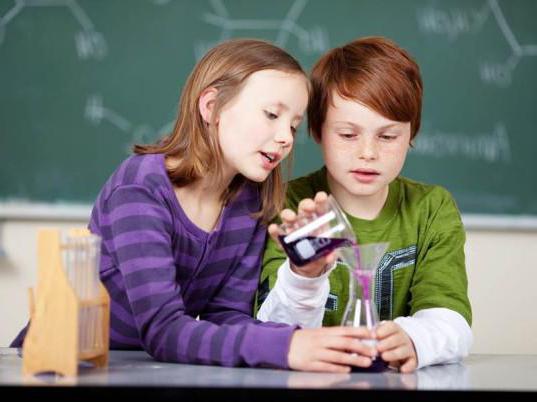
Schoolchildren who attend such children's groups often become winners of Olympiads and easily enter universities in their chosen field.
Activities for children with disabilities
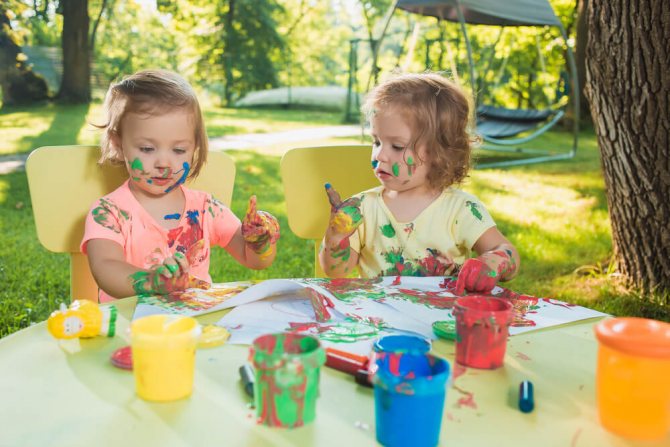
According to various sources, in Russia there are more than 2 million children with disabilities and about 700 thousand disabled children. Although there is not an accessible educational environment everywhere, children with special needs have the opportunity to study in various clubs and sections.
| Direction | Suitable for: benefit |
| Swimming | A sport with a minimal list of contraindications. Particularly useful for cerebral palsy and musculoskeletal disorders. |
| theatre studio | Children with ASD, delayed psycho-speech and mental development, mental disabilities, disabled children. ⠀ Develops communication skills, works with low self-esteem, fears of communicating with other people, |
| ISO | Children with ASD, delayed psycho-speech and mental development, musculoskeletal disorders, mental characteristics. ⠀ Causes positive emotions, helps to express oneself. |
| Chess | Children with mental retardation, hearing, speech, and musculoskeletal disorders. ⠀ Helps overcome developmental difficulties and isolation. |
| Yoga (health-improving gymnastics) | Children with visual, hearing, speech, musculoskeletal, and mental disabilities. ⠀ Positively affects the physical and neuropsychic development of the child. |
⠀ It is better to discuss the possibility of playing sports, dancing and other areas related to intense physical activity with an adaptive physical education specialist.
Tourist and Local History Club
The tourism and local history club is an organization for teenagers or high school students. In such groups, children study the nature of their native land and its features. The main goal of such associations is to prepare children for tourist life. They learn to pitch a tent correctly, find a landmark in unfamiliar terrain, make a fire, use insurance correctly, and help friends in trouble. These organizations, as a rule, practice frequent hiking trips to get acquainted with the vegetation and attractions of their native land. Schoolchildren learn the history of their city and meet famous people of their homeland.
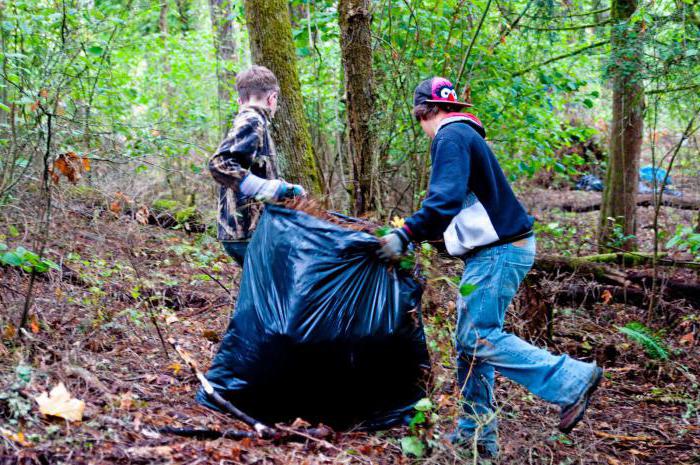
Work in such studios is aimed at the general health of children, broadening their horizons, developing attention and survival skills in difficult conditions, which gives them the ability to realistically perceive the existing situation in adulthood.
Senior group. Senior preschool age. Children 5-6 years old
Additional paid educational program for children 4–5 years old Target section Explanatory note The circle program was developed on the basis of current regulatory documents regulating the activities of the preschool education : Federal Law of December 29, 2012 No. 273-FZ “On Education in the Russian Federation”
; “Order.
Additional general developmental program “Entertaining Mathematics” for children 4–5 years old FEDERAL STATE PRESCHOOL EDUCATIONAL INSTITUTION COMBINED KINDERGARTEN No. 1 “GOLDEN KEY”
Additional general developmental program “Entertaining Mathematics”
for
children 4–5 years old, secondary group No. 1 “Stars”
on 202 2 – 2022 school year COMPLETED by: teacher.
Publication “Work program of the “Testoplasty” circle (senior preschool.” “The sources of children’s creative abilities and talents are at their fingertips. From the fingers, figuratively speaking, come the finest streams that feed the source of creative thought. In other words: the more skill in the nursery hand, the smarter the child." V.A. Sukhomlinsky GOAL.
Circle for introducing children to the origins of Russian folk culture “Rodnichok”
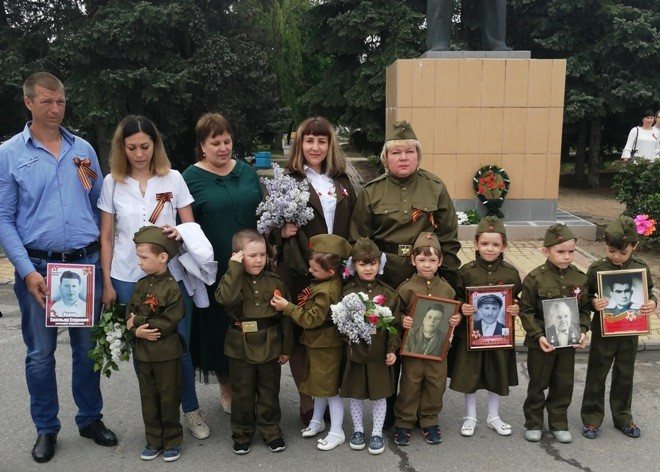
Teachers of the MBDOU “Kindergarten “Topolek” have developed plans for circle work and, during the 2019-2020 school year, are implementing work with children on physical, social, personal, and intellectual development.
Educator Budyanu N.V. conducts group work “Rodnichok” with children of the senior group “Yagodki”.
Goal: To form spiritual and moral relationships and feelings of belonging to one’s home, family, village. To form in children initial ideas about the life and way of life of the Russian people, their traditions and culture.
The teacher uses a variety of forms and methods in his work: conversations, games, theatrical elements, folklore and productive activities.
The teacher organized with the parents a mini-museum “Russian Izba”, in which classes and conversations are held to introduce Russian poetry and Russian folk tales. The teacher implemented the socio-cultural project “My Genealogy” with children and parents, and produced a “Family Tree” and “Family Coat of Arms”.
